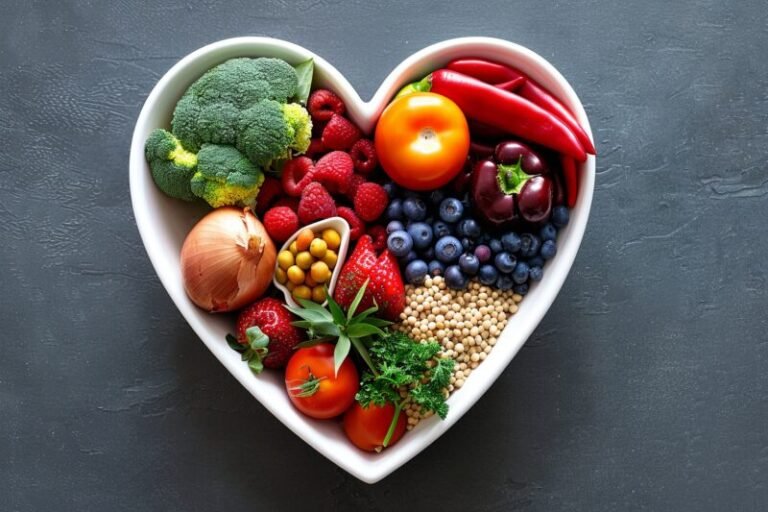I wanted to start this blog by saying that I don’t like the word diet as it connotes the many fad diets that are constantly in our faces. I’m not promoting any particular food group, nor do I believe we should completely cut out a food (like meat for example) unless it’s junk and harmful to our gut microbiome. Because we are bombarded with so many different trends and diets today, especially through social media, it can all get very confusing.
If I conducted a survey asking hundreds of people what they thought about healthy eating, I would get many different answers. Some people think that just because they don’t eat out at fast food restaurants, they are on the right track. Others believe that good old home cooking is the way to go no matter what they cook.
While there may not be a “one size fits all” diet, there are certain principles that cannot be disputed. All diets should be covered by whole foods – those that come from nature, are minimally processed and chemical-free. We are an alkaline species, meaning we are designed by nature to eat foods that our cells need to live, regenerate and build healthy bodies. Most of our daily food agenda should come from raw fruits and vegetables, sprouted grains, and lean proteins. I try to encourage everyone to eat 80% alkaline forming foods daily, with the other 20% coming from acids (cooked foods) that are easily digested and free of chemicals, hormones, etc. An example of a healthy diet would include at least 8-10 vegetables and 3-5 fruits, lean cuts of fish or meat, with grains such as wild rice or quinoa or sweet potato and natural healthy fats such as olive, coconut or avocado oil. There is no doubt that a healthy diet will ensure the best performance as you will have more energy and vitality.
It’s so easy to be swayed by fancy packaging and promises of added nutrients when grocery shopping. Packaged products can only offer you one truth – a quick fix. It’s true that it takes less time to open a box than to make a salad, but you’ll pay for it in the end. All processed foods that are high in refined sugars, added colors, flavors and preservatives should be avoided. We call these “junk foods” that are toxic to your system. Boxed cereal is a perfect example of how the public is fooled into thinking they are getting enough fiber in their breakfast. Not only are most of these grains high in sugar, but most of the fiber is lost during the heating and manufacturing process.
Fruit juices are another culprit. They contain too much fructose, no phytonutrients or fiber. Eat real fruit.
Veggies and veggie chips that have recently hit stores are another swing in the wrong direction. Save yourself some money and try rubbing some olive oil on your own cabbage leaves. Place them under the broiler for less than a minute and you have your own chips!
Beware of packaged gluten-free foods. They have become widely available due to consumer demand. Most are nothing more than refined, processed, junk food.
What about eggs? This is a question I get asked a lot because of the myth that they are high in cholesterol. The healthy way to eat an egg (organic and free range) is raw or very gently cooked with the yolk still runny. Raw eggs are better and healthier because cooking them will damage valuable nutrients like lutein, bioflavonoids, and vitamin D. Heating the egg also damages its chemical makeup, and distortion can lead to allergies.
Although some people complain that healthy snacks are hard to come by, I can easily support that statement. Veggies or raw hummus crackers are a very easy snack to throw in a bag, and health food stores today offer a wide variety of different flavors. Seeds, olives, plant-based energy bars are also a good snack option. As consumer demand for healthy food increases daily, prices are also dropping, even with organic options!
Research has shown that those who follow a plant-based diet have a lower risk of heart disease, hypertension, and obesity than the North American average. Plant foods are rich in easily absorbed vitamins and minerals to provide optimal nutrition. Most of the people I see in my practice have digestive problems because they eat too much protein and not enough fiber. It is much harder for our bodies to break down the protein that comes from a steak than a salad.
For people who don’t usually eat a lot of vegetables, I think it’s important to go slow. Start with a meal. Changing your breakfast to include 3-4 pieces of fruit or a fruit smoothie can be a great start. My favorite smoothie is one that includes frozen mango or berries (instead of ice cubes), a banana, a pear (makes a great texture), and a good hemp-based protein powder. Add some water or coconut water and you have a refreshing morning drink full of fiber, vitamins, enzymes and electrolytes.
Above all, listen to your body. Small signs and symptoms of digestive distress can turn into big problems if ignored. Very often the wrong food combinations can lead to stomach upsets. One food that comes to mind is fruit. Always eat fruit on its own as it is a simple sugar that does not require insulin to be digested. Combining this food with another will create confusion and discomfort in the body.
Save drinking water and other liquids for between meals and not with your meals, as doing so can dilute your enzymes that are so necessary for good digestion.
